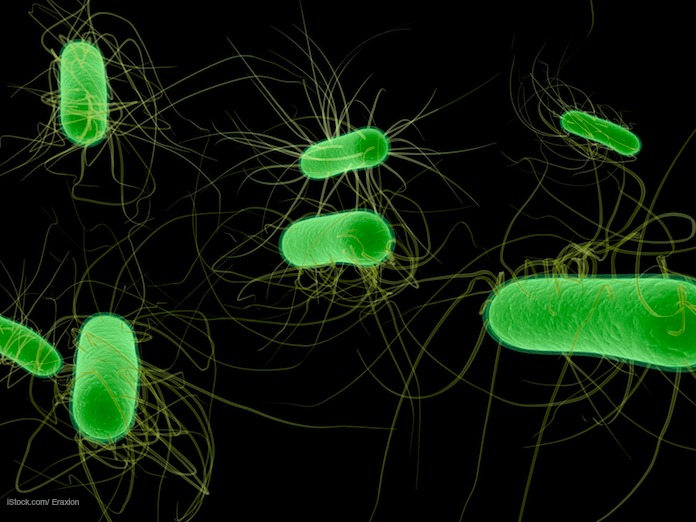According to a Facebook page report, at least 302 Marine Corps recruits have been sickened in an E. coli outbreak at Marine Corps Recruit Depot San Diego (MCRD). Apparently, people are sick at MCRD San Diego and the command field’s training facilities at Elon Range on Camp Pendleton. Ten people are hospitalized at an off-base medical facility.

Some of the Marines are infected with Shiga toxin-containing E. coli (STEC) bacteria, which can cause serious illness including kidney failure. As of October 31, 2017, several hundred out of 5,500 recruits are sick. the number of cases “spiked” on Monday.
Brig. Gen. William Jurney, commanding general of MCRD San Diego and the Western Recruiting Station, said in a statement, “Our immediate focus is identifying, isolating, and treating recruits who present symptoms. We are working to identify the cause of the sickness, making sure our affected recruits can return to training as soon as possible and continuing training for recruits not influenced.”
The command is investigating the source of the outbreak. At this time, they have separated those sickened from the rest of the Marines, and limiting interaction with unaffected recruits. They are also increasing hygiene requirements, focusing on hand washing. They are also cleaning facilities to “ensure proper sanitation and hygiene in all areas.” Family members will be contacted if a recruit’s graduation date changes due to missed training from this illness.
Since E. coli infections usually progress to hemolytic uremic syndrome (HUS) in children age 5 or younger, there may be no cases in this group. The notice did not specify if anyone has developed HUS. However, adults can develop thrombotic thrombocytopenic purpura (TTP) after an E. coli infection.
TTP occurs when Shiga toxins care blood clots in small blood vessels throughout the body. Those clots usually develop in the brain and kidneys. This complication can be life-threatening, and can cause kidney failure and strokes.
Officials have not yet identified the strain of E. coli that has caused this outbreak, or if the cause was contaminated food or water. Since several recruits have been diagnosed with Shiga toxin-producing E. coli, the strain could be O157, O11, O26, or others.
The symptoms of an E. coli infection include painful abdominal cramps, diarrhea that is usually bloody and/or watery, and a mild fever. People develop these symptoms a few days after exposure to this pathogenic bacteria. Most people who contract this infection do see a doctor because symptoms are so severe.
In the past, E. coli outbreaks are usually caused by contaminated food, either ground beef that is not cooked or handled properly, from contaminated raw milk, sprouts, or other contaminated produce.
Pritzker Hageman, America’s food safety law firm, successfully represents people harmed by adulterated food products in outbreaks throughout the United States. Its lawyers have won hundreds of millions of dollars for survivors of foodborne illness, including the largest verdict in American history for a person harmed by coli and hemolytic uremic syndrome. Pritzker Hageman lawyers are regularly interviewed by major news outlets including the New York Times, CNN, and the Wall Street Journal. In addition, the firm represents people harmed by pathogenic microorganisms in Legionnaires‘ disease, surgical site infection and product liability cases.




